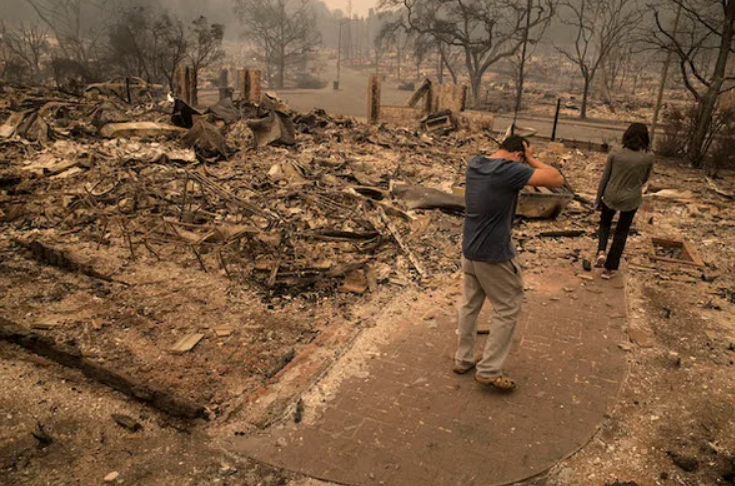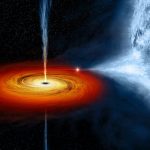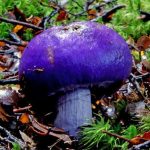It sounds like a bad disaster movie, but climate change isn’t an abstract threat for our grandchildren. It’s here now

When wheels and metal hubcaps melt, they puddle on driveways like silver clouds. That’s what happened in last year’s Tubbs Fire, which killed 22 people and destroyed almost 3,000 homes around Santa Rosa, California. Then came the Camp Fire, which was still raging about 140 miles to the north as I wrote these words just before Thanksgiving. Fifteen thousand homes and buildings have burned. At least 81 people have died. Paradise–a town of 27,000 people–is largely gone.
No one can say that climate change caused the Camp Fire. We can say climate change is making the Camp Fire and other wildfires worse across the western United States and Canada—through warmer temperatures and drier conditions. Fifteen of California’s 20 biggest fires on record have occurred since 2000. The biggest fire in California’s history—the Mendocino Complex—charred 460,000 acres this summer. The most destructive fire in state history is burning right now. This is the Hellocene.
Scientists named the “Holocene” to mark the period starting 12,000 or so years ago after the last ice age ended. More recently, Nobel Prize–winner Paul Crutzen adopted the “Anthropocene” (from anthropos, the Greek word for human being) to mark the period since the start of the industrial revolution. Part of Crutzen’s rationale was that our actions have changed the earth’s atmosphere in ways that are now detectable from space.
I propose the “Hellocene” for what we’re seeing today. While it’s hard for me, as a scientist, to name something that sounds like a comic book or bad disaster film, it’s harder to watch what’s happening today without speaking up. Weather and climate disasters in the United States cost an estimated $306 billion in 2017, about $100 billion more than ever before. Climate change isn’t an abstract threat for our grandchildren. It’s here.
Hurricanes are strengthening, too, on average. Warmer ocean water is seeing to that. And while the power of any given storm can’t be attributed to a changing climate, rising seas—the result of melting glaciers and icecaps and the fact that water expands as it warms—certainly can. When Hurricane Sandy caused $70 billion in damage several years ago, largely as a result of storm surge, it was more hellish than it needed to be because the ocean started eight inches higher than it would otherwise have been. The same was true last year for Irma, Maria and Harvey, which flooded my childhood haunts in west Houston. The same will be true for every hurricane for centuries to come. This is the Hellocene.
A new paper recently described hundreds of pathways whereby climate change has affected, and will affect, people’s lives. The researchers found dozens of ways that climate hazards harm us, from disease to mental illness to death. They showed that we are piling up climate hazards like our trillion-dollar debt. Some coastal areas, for instance, will face half a dozen hazards, from storms to storm surges, concurrently by the end of the century. News coverage of the study was Hellocene-like. The New York Times headline: “‘Like a Terror Movie’: How Climate Change Will Cause More Simultaneous Disasters.”
I’m an optimist at heart. An earth and environmental scientist has to be. The Hellocene still has beautiful weather, beautiful scenery and beautiful people. It won’t end civilization—at least, I don’t think so. We can still make things better by producing cleaner energy and adapting to the coming changes, saving lives today and tomorrow.
People will suffer needlessly, though, even if they live far from the actual disasters. Here in the Bay Area, we’ve had unhealthy, at times dangerous, air for weeks. You can taste the smoke at my house, and we’re 200 miles from the tragic fire. In downtown Sacramento, the Air Quality Index reached a dangerous 427 the week before last, as bad as it’s ever been. Emergency room visits will rise.
Our local hardware store received a recent shipment of 3,000 masks. They sold out in a few hours. Welcome to the Hellocene.











RSS